General
Infrastructure collapse Ghana:Ghana’s Climate Emergency
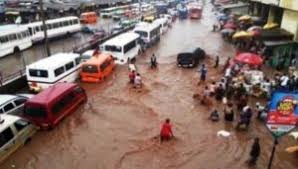

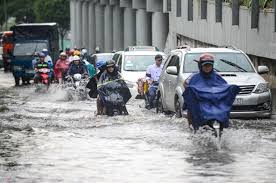


 Climate Change and Infrastructure Collapse in Ghana:
Climate Change and Infrastructure Collapse in Ghana:
Ghana is facing serious problems because of climate change, but these issues don’t get much attention. Here’s a simple breakdown of what’s happening and why it’s a big deal:
What’s Going On?
1. Weird Weather Hurts the North:
• The weather in Ghana is changing. It’s getting hotter, and rains are unpredictable—sometimes too much, sometimes too little.
• This causes fights over things like water and land, especially in northern Ghana, where life is already tough.
• Back in 2007, bad storms destroyed over 1,000 kilometers of roads (that’s like 600 miles!), 13 bridges, and 442 sewers in the north. This makes it hard for people to travel, get supplies, or even have clean water.
2. Coastal Towns Are Disappearing:
• Along Ghana’s coast, the sea is eating away at the land (called coastal erosion). Towns like Fuveme, which used to be full of life, are now like islands because the water has taken over.
• People are losing their homes and have to move, which is really hard on families and communities.
3. Cocoa Farming Is in Trouble:
• Cocoa is a huge part of Ghana’s economy—it’s how many people make a living.
• But climate change, illegal gold mining (galamsey), and a disease called cacao swollen shoot are ruining cocoa farms. This disease has already damaged 500,000 hectares of farmland (that’s about 1.2 million acres, or the size of thousands of football fields).
• When cocoa farms fail, farmers lose money, and Ghana’s economy suffers.
Why Is This Bad?
• Broken Roads and Bridges: Without good roads or bridges, people can’t get to markets, schools, or hospitals easily. It also makes it harder to deliver food or medicine.
• Lost Homes: Families in coastal towns like Fuveme are forced to leave their homes, and many don’t have anywhere to go or money to start over.
• Cocoa Problems Hurt Everyone: If cocoa farms keep getting destroyed, farmers lose their jobs, and Ghana loses money it needs for things like schools and hospitals.
• Ignored Issues: People outside Ghana talk more about the country’s economy growing than these problems, so they don’t get the attention or help they need.
Why Don’t We Hear About This?
These issues are complicated and happen in areas that are hard to reach, like rural northern Ghana or coastal villages. News outlets often focus on bigger stories, like Ghana’s overall economy, instead of these local crises.
What’s the Big Picture?
Climate change is making life harder in Ghana by damaging roads, homes, and farms. These problems make it tough for people to live, work, and stay safe. If they’re not fixed, they could hurt Ghana’s future, but not enough people are talking about it to make a change.
Below are some pictures showing infrastructure collapse in some areas in Ghana:



 O
O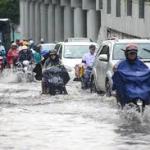
Tackling Climate Change and Infrastructure Collapse in Ghana: Practical Solutions for a Resilient Future
Ghana faces growing threats from climate change, including crumbling infrastructure, vanishing coastal towns, and a struggling cocoa sector. But there are clear, practical solutions that can help the country adapt and thrive.
1. Strengthen Infrastructure
Floods and heavy rains have severely damaged roads, bridges, and drainage systems, especially in northern Ghana. To combat this:
- Roads and bridges should be rebuilt using stronger materials and elevated above flood levels.
- Urban drainage systems, especially in Accra, must be upgraded to manage floods effectively.
- Regular maintenance and early warning systems can prevent disasters and save lives.
2. Protect Coastal Communities
Towns like Fuveme are being lost to rising seas. Solutions include:
- Building sea walls and planting mangroves to reduce erosion.
- Supporting the safe relocation of at-risk communities.
- Encouraging development away from vulnerable coastlines, with local residents involved in planning.
3. Revive the Cocoa Industry
Cocoa farms are suffering from climate change, illegal mining, and plant diseases. Key actions:
- Train farmers in climate-smart techniques, like using shade trees and drought-resistant crops.
- Expand irrigation, currently used on just 2% of farmland.
- Provide disease-resistant cocoa plants and crack down on illegal mining.
- Offer credit and support for farmers to diversify crops and incomes.
4. Broader Climate Solutions
To address long-term climate impacts:
- Invest in clean energy like solar and wind, especially in rural areas.
- Plant trees to absorb carbon and prevent erosion.
- Improve waste management to prevent floods and reduce emissions.
- Expand climate education and secure more funding from global partners.
Challenges and the Way Forward
Despite clear solutions, Ghana faces funding shortages, slow bureaucracy, and limited community involvement. To move forward:
- Empower local communities and grassroots groups.
- Prioritize quick, cost-effective actions like mangrove planting and weather alerts.
- Push for more international aid with faster and simpler access to funds.
Business
SongbirdCEO is the Master BRAIN behind Kwaku Ne Akua Foundation.
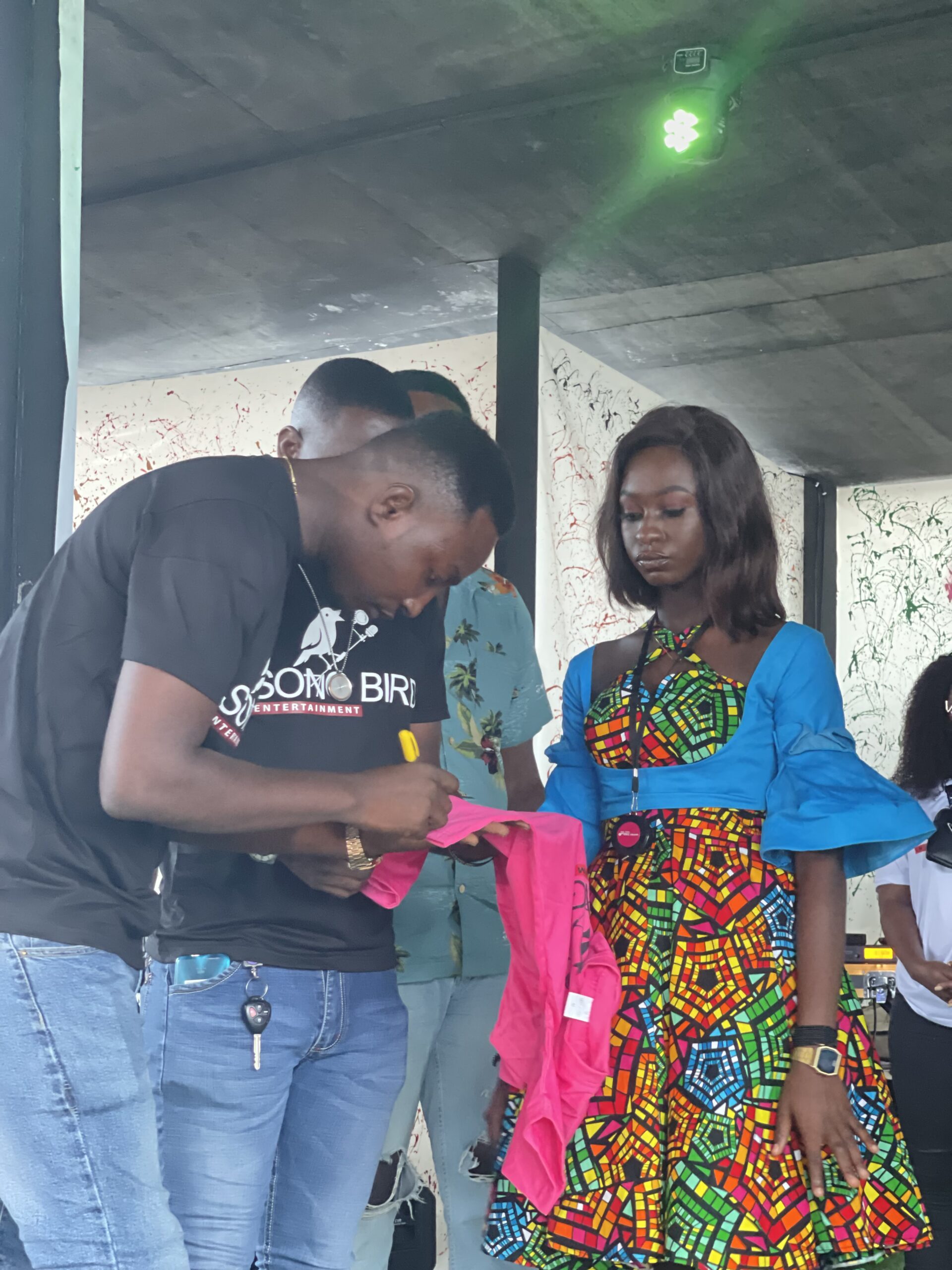
Kwaku ne Akua Foundation
The Kwaku ne Akua Foundation is a non-governmental organization (NGO) dedicated to creating positive change through charitable initiatives. We are built on the powerful principle of collective action, fueled by the generous donations and contributions of our dedicated members. Our work is made possible by a vibrant and passionate network of volunteers committed to making a tangible difference in our communities.
To identify and address critical needs within our communities by mobilizing resources and volunteers. We provide support, hope, and opportunity to the vulnerable and underserved through targeted charitable programs and donations.
The Visionary:
The brain behind this beautiful project is Mr. George Lariba Azure, the esteemed CEO of Songbird Entertainment Limited. His vision extends beyond the world of entertainment, driven by a deep-seated passion for social responsibility and a commitment to giving back. Mr. Azure founded the Kwaku ne Akua Foundation to create a structured, sustainable channel for compassion, uniting people for a common, charitable cause.
What We Do:
- Organized Charity Drives:We mobilize our network to collect and distribute essential resources, including food, clothing, educational materials, and medical supplies.
- Member-Funded Support:The foundation operates on the generous financial contributions of its members, ensuring that every donation directly supports our charitable causes.
- Volunteer-Led Initiatives:Our volunteer group is the backbone of our operation, contributing their time, skills, and energy to bring our projects to life.
- Community Partnerships:We collaborate with local communities to identify their most pressing needs and ensure our support is both effective and respectful.

Our Name: “Kwaku ne Akua”
The name, rooted in Ghanaian culture, symbolizes universality and shared humanity. “Kwaku” and “Akua” (common names for children born on Wednesday ) represent every man and woman. It signifies that our foundation is for everyone, by everyone, and that our strength lies in our unity.
Join Us:
We believe that together, we can achieve more. You can be a part of this beautiful project by:
- Becoming a Contributing Member
- Joining our Volunteer Group
- Partnering with Us
For more information on how to get involved, please contact us.
Contact Information:
[Tel;+233266200900 ,Email.songbirdafrica@gmail.com,songbirdghana@gmail.com]
SongbirdCEO is the Master BRAIN behind Kwaku Ne Akua Foundation.
Business
We must consider the strategic rehabilitation and employment of arrested cybercriminals.
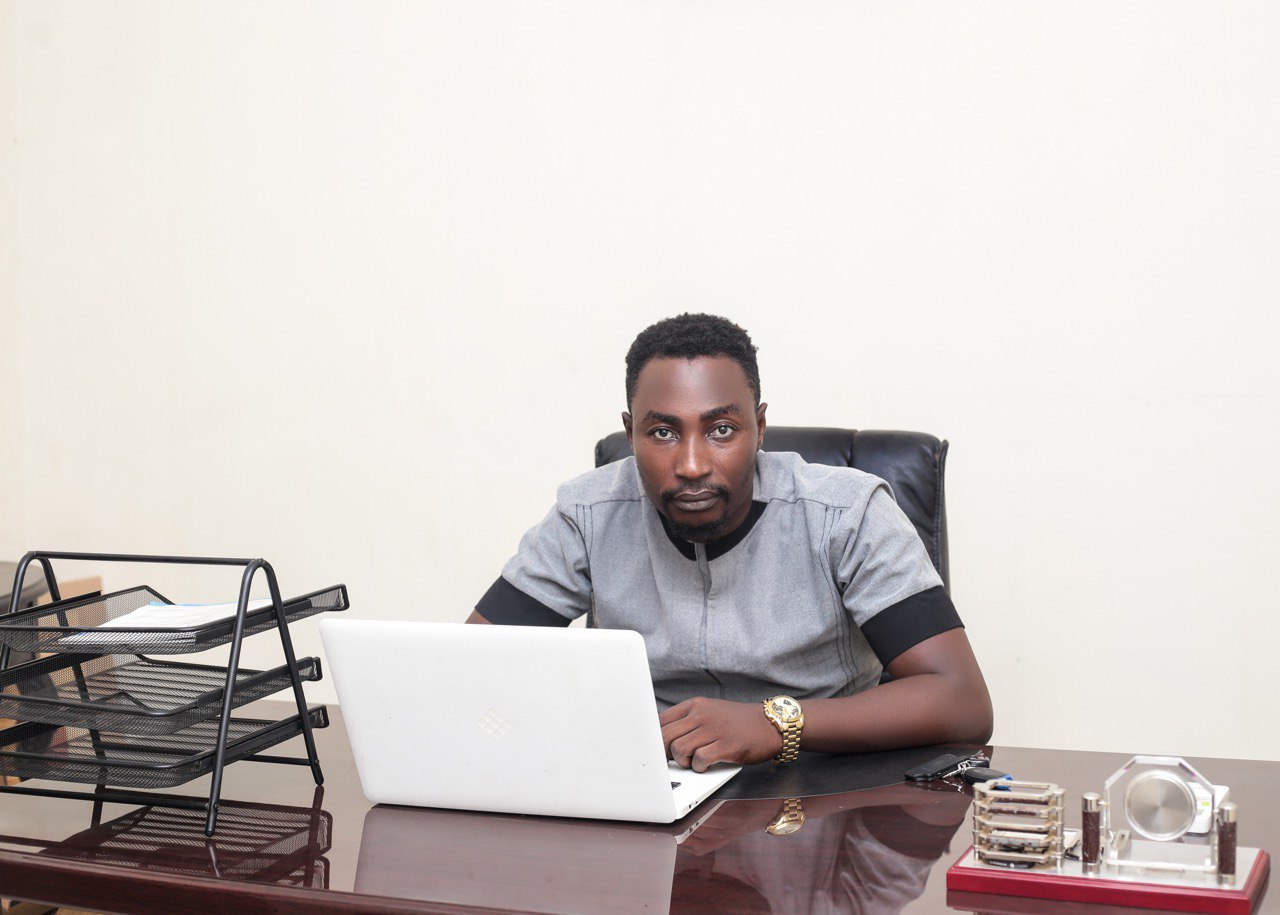
 This month, as we officially launch National Cybersecurity Awareness Month, we unite under a common banner: to build a safer, more secure digital Ghana. We’ll hear about strong passwords, two-factor authentication, and the importance of updating our software. These are the essential foundations, the “hygiene” of the digital world.
This month, as we officially launch National Cybersecurity Awareness Month, we unite under a common banner: to build a safer, more secure digital Ghana. We’ll hear about strong passwords, two-factor authentication, and the importance of updating our software. These are the essential foundations, the “hygiene” of the digital world.
But today, let’s talk about something more radical. Let’s talk about the elephant in the server room.
There’s an old saying in security circles: “To catch a thief, you think like a thief.” In the cyber realm, this adage reaches its zenith. The most formidable cybercriminals—the ones our dedicated agencies work tirelessly to apprehend—don’t just think like thieves. They possess a deep, intuitive, and often unparalleled understanding of the digital vulnerabilities they exploit.
When these individuals are arrested, a critical question emerges: What do we do with this concentrated talent? Do we simply lock away their potential, or do we dare to do something transformative?
We must consider the strategic rehabilitation and employment of arrested cybercriminals.
Before you dismiss this as reckless, consider the precedent. In the world of ethical hacking, the most sought-after professionals are often those who can deconstruct a system with the same creativity and ruthlessness as a malicious actor. They know the backdoors because they’ve built them. They understand social engineering because they’ve perfected the art of the manipulative phone call or email.
just awareness, but also innovation. Let’s champion the traditional messages of caution, but let’s also dare to have courageous conversations about how we build an unbreachable digital Ghana.
The minds that have challenged our systems could be the very ones to fortify them. The question is, are we ready to offer a second chance in exchange for a safer future for all?
Let’s use this month to start the conversation.
Join the Dialogue.
What are your thoughts? Can rehabilitation work in our cybersecurity strategy? Share your views using the hashtag #GhanaCyberFuture.
Together, let’s build a Ghana that is not only digitally enabled but also digitally empowered and secure.
General
More media coverage of Gbenyiri conflict important – Barker-Vormawor
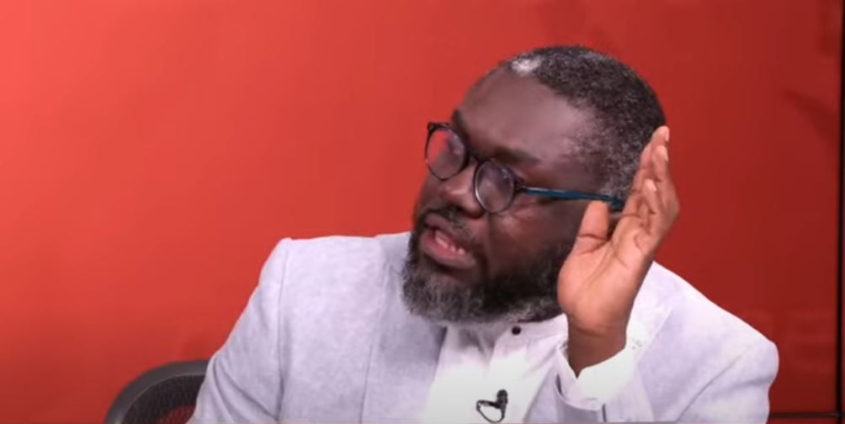
Legal practitioner Oliver Barker-Vormawor has questioned why the violence in Gbeniyiri has received so little media attention compared to incidents in other parts of the country.
Speaking on Newsfile on JoyNews, Barker-Vormawor lamented what he called a “partitioning of empathy” regarding the fatal land clashes in public discourse.
He observed that while at least 31 people have been killed and more than 48,000 displaced from 12 communities, the national spotlight has been overwhelmingly consumed by the Akwatia by-election.
“I am also concerned about how we petition our humanity and empathy towards reportage of issues generally. And I’ve noticed, I mean, again, it’s a, it’s a, it’s a, perhaps a long historical thing in terms of how we cover the northern part of the country, the way in which we create sympathy and empathy around issues that affect certain areas, it goes all the way down,” he said.
-

 Health3 months ago
Health3 months agoMilitary Need to Step In to Solve Ghana’s Sanitation Crisis.
-
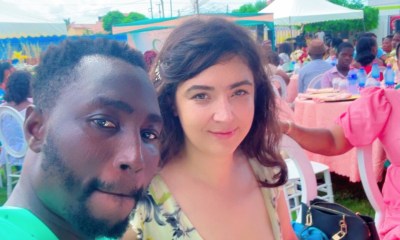
 Entertainment3 months ago
Entertainment3 months agoGeorge and Kat are getting married.
-
Business2 months ago
António Caramelo Raposo: Driving Growth in Ghana’s Cashew Industry
-

 Entertainment3 months ago
Entertainment3 months agoGeorge and Kat memories pictures.
-

 Entertainment2 months ago
Entertainment2 months agoGhana Highlife Era is gone for Good.
-

 Uncategorized2 months ago
Uncategorized2 months agoBreaking News | A Nation in Mourning!!😭😭😭
-

 Entertainment2 months ago
Entertainment2 months agoReasons the White Bird known as Cattle Egret Follows the Cow
-

 General3 months ago
General3 months agoWhy lotto Kiosks in Ghana are Painted Red ,Yellow and Green?







